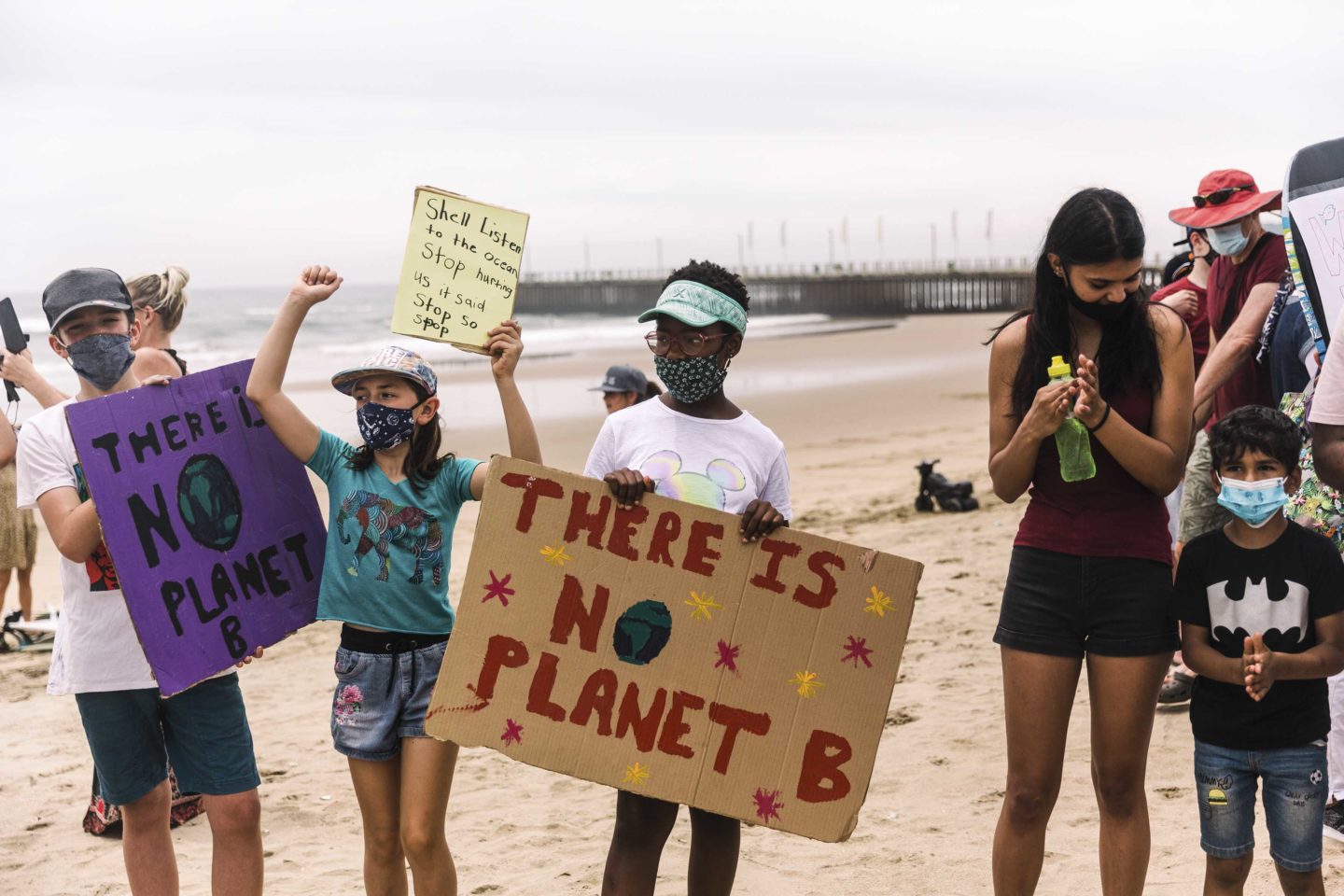Shell’s seismic survey endangers a whole way of life
For communities along the Wild Coast, the ocean is much more than a resource from which they get a sustainable harvest to feed their families. It is also their nurturing healer and partner.
Author:
7 December 2021
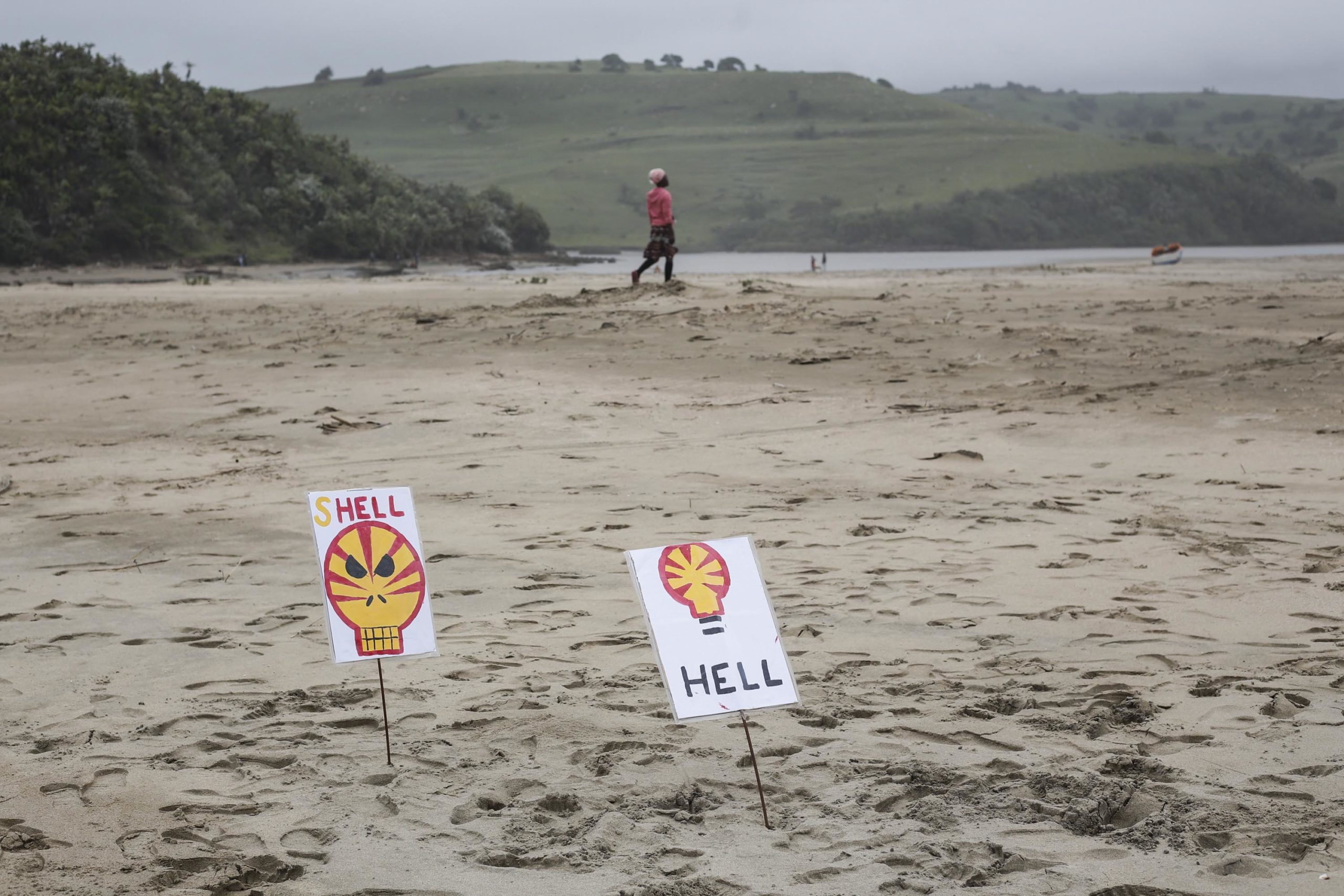
Hundreds of fisherfolk and environmental activists gathered along the Mzamba River estuary on the Eastern Cape’s Wild Coast on Sunday 5 December to protest against multinational oil and gas company Shell’s plans to embark on a major seismic survey between Morgan Bay and Port St Johns. They joined dozens such protests countrywide calling on the government to halt the survey owing to concerns about harmful impacts on South Africa’s marine ecosystems and coastal communities.
Two separate urgent applications were brought challenging the survey on behalf of local coastal associations, environmental and human rights organisations and residents of the Wild Coast region. The first was denied in the high court in Makhanda on 3 December, whereas the second was set down to be heard in the same court on 14 December.
The fishers say Shell’s seismic blasting poses a threat to fish stocks and the livelihoods of communities along the Wild Coast as well as those in KwaZulu-Natal who survive on the harvesting of marine resources.
According to the Centre for Environmental Rights, Shell’s original application for an exploration right in 2013 was accompanied by an environmental management programme stating that the survey would involve “extremely loud (220 decibels) underwater explosions or discharges at intervals of 10 to 20 seconds, which are to continue 24 hours per day for four to five months”.
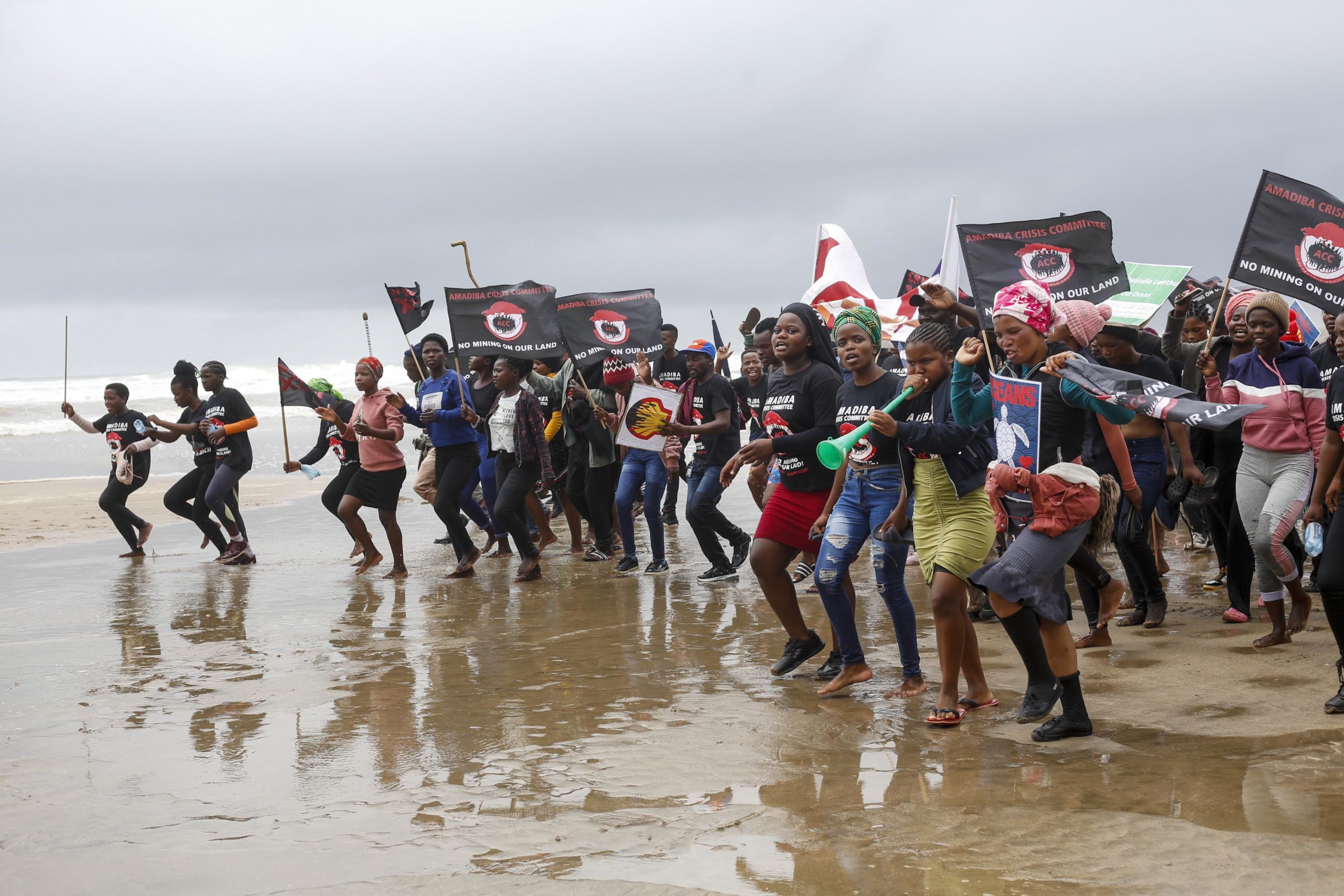
Nonhle Mbuthuma, spokesperson of the Amadiba Crisis Committee, said the organisation would continue to fight Shell. “From all angles and in all eras we’ve been tested. The government and many private corporations have tried and failed to exploit Pondoland and its riches, but we will not be moved. We will continue to stand firm against the looming threats to our resources.
“We refuse to allow intruders and invaders masked as investors or job creators to milk our land away. We don’t need saviours here – we have been on our own and we are fine this way. We don’t need Shell. We don’t need any mines here. That is a message that’s been clear from the onset,” she said.
“This is not about jobs, this is about survival. We survive holistically from the waters, the seas and the soil. Our connection and relationship with nature here is cultural and sacred. It is beyond elite and greedy lines. We see how the government has always turned their backs against us, often siding with the greedy corporations who want to drill minerals out of this area and pocket the profits, pushing us further away from what is rightfully ours.
“We also note the blatant neglect from the chief, Lunga Baleni. We know that traditional leadership in the hands of male leaders has been captured by the state. That is why we are often seen as enemies of the state. If this goes ahead, it’ll be over for us. This whole area will turn into a Gomorrah,” said Mbuthuma.
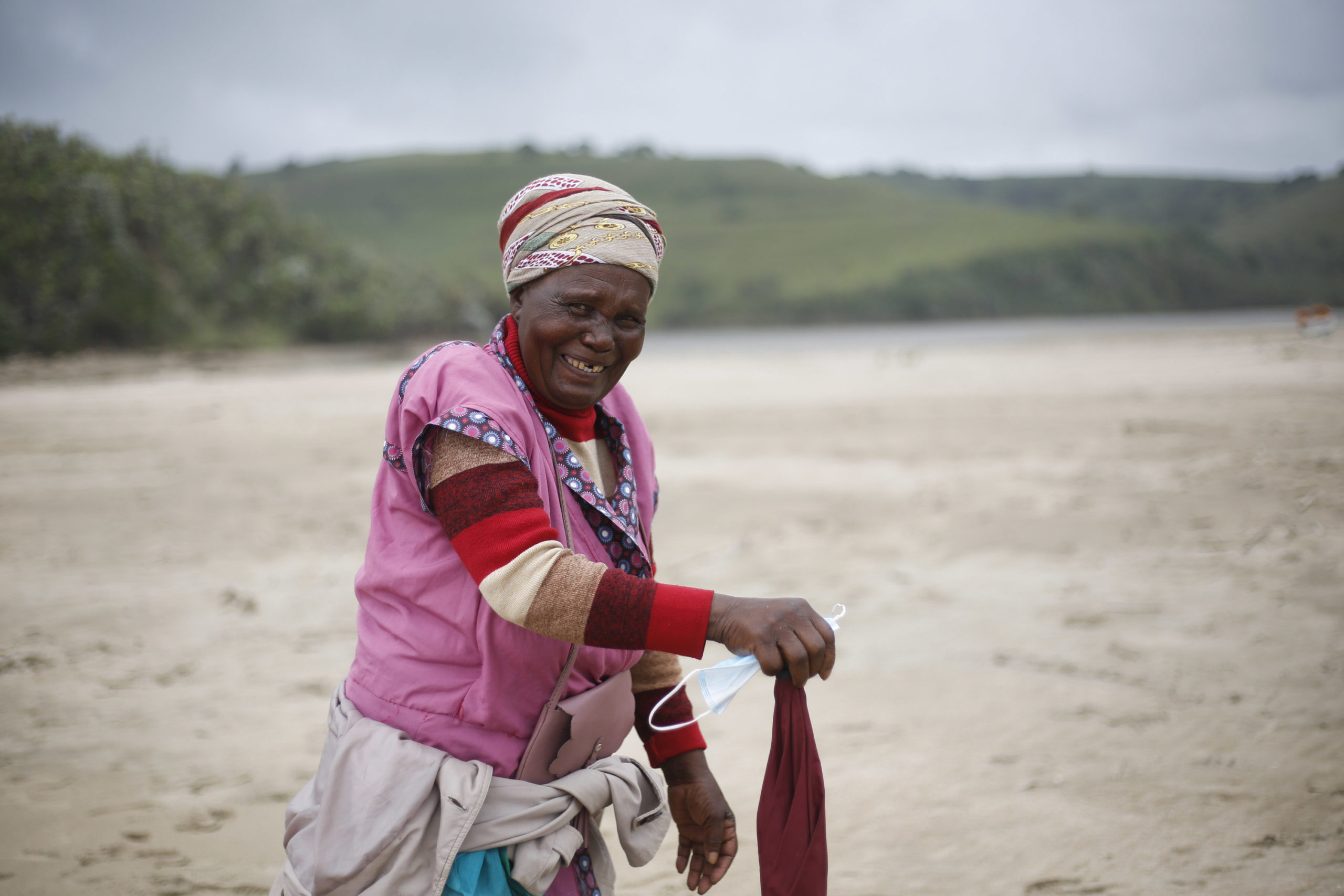
Living from nature
The land and environmental rights activist from Sigidi, who has been at the forefront of a series of legal battles against the proposed mining of Umgungundlovu land in Xolobeni for titanium, said the application that was dismissed on 3 December highlighted the historical and systematic exclusion of vulnerable small-scale fishers along the coast. They include a significant number of women both in the fishing and fish-trading sectors in the area.
In these communities, fishing is done on a subsistence basis, just like crop and livestock farming. Combined with remittances from labour migrants and government grants, it provides for their livelihoods.
Many of the fishers find lobsters and mussels in shallow gullies and rock pools during low tide, or the lobsters are caught using poles with bait at night. But diving for lobster remains the most common method for their daily catch.
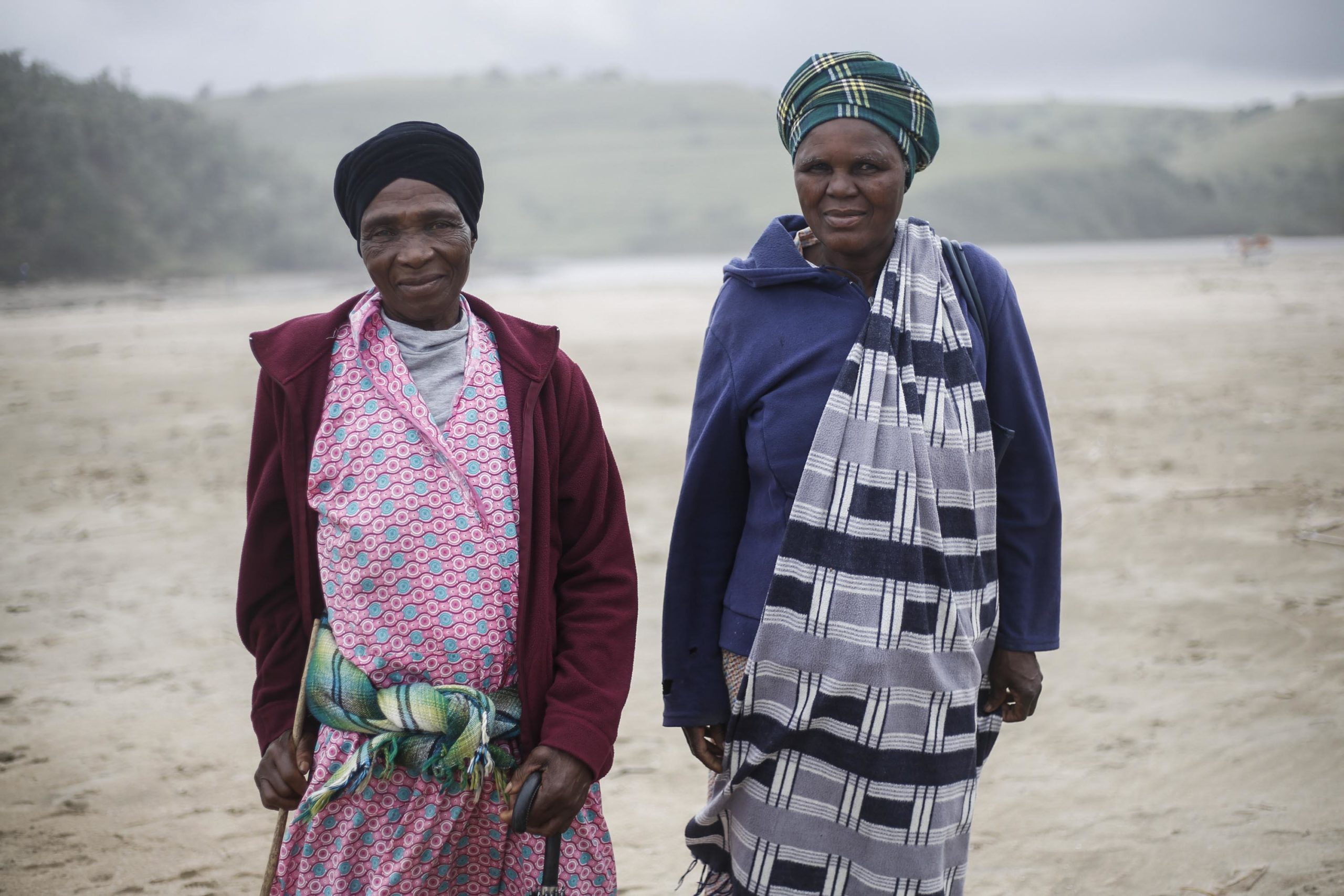
Madenge Mzobe, a pensioner from Sigidi village, which lies a walking distance from the ocean, said she has been fishing for a living since the age of seven and was taught how to do it by her mother. Mzobe is a freediver who catches about 10 lobsters a day, and she fears Shell’s survey will cause irreparable harm to the marine resources on which she depends. Surviving on both her old-age pension and what she makes from trading her catch as well as sweet potatoes and amadumbe at the market in Mtamvuna, Mzobe said the ocean is her lifeline.
Like many of the women at the march, Mzobe does not know her date of birth, but she has mastered the skills of fishing and knowing the tides and migration patterns of the fish she catches.
“It’s important for us, as women who benefit from the ocean, to stand up against those who barely recognise us. Did they even know that there are people who use this beach, who fish in these waves and families who have made a decent living from what is in the ocean? If they knew that there are entire communities living in harmony with the ocean, the right thing to do was to communicate with us. We would have told them that we’re here to say. We don’t want Shell. Hamb’uyoshona, Shell. Go and die, Shell,” said Mzobe.
It’s all connected
Neville Sonwabo van Rooy, community outreach coordinator at The Green Connection, a social and environmental justice organisation, said the customary value of small-scale fishing for the Wild Coast communities is not acknowledged.
“It’s not just of economic value to them. They have learnt to live in harmony with nature. The environment is not a separate condition from human lives, it is always interconnected. Based on that, we know that the ocean is interconnected to the people living next to the ocean and that should never be ignored.
“We are very alarmed by the way things have turned out … we appreciate the national and global support against Shell’s plan to destroy the ocean and people’s livelihoods. The National Environmental Management Act says there needs to be public and meaningful participation, and in this case there has not been any meaningful public participation. They’ve spoken to politically affiliated groups and excluded the community. We object to that type of participation,” said Van Rooy.
“We have women and men diving and fishing here, and the marine systems will be complicated and interrupted by Shell’s oil and gas exploration plan. Once the patterns of the marine ecosystem are disrupted, it will diminish their way of survival.”
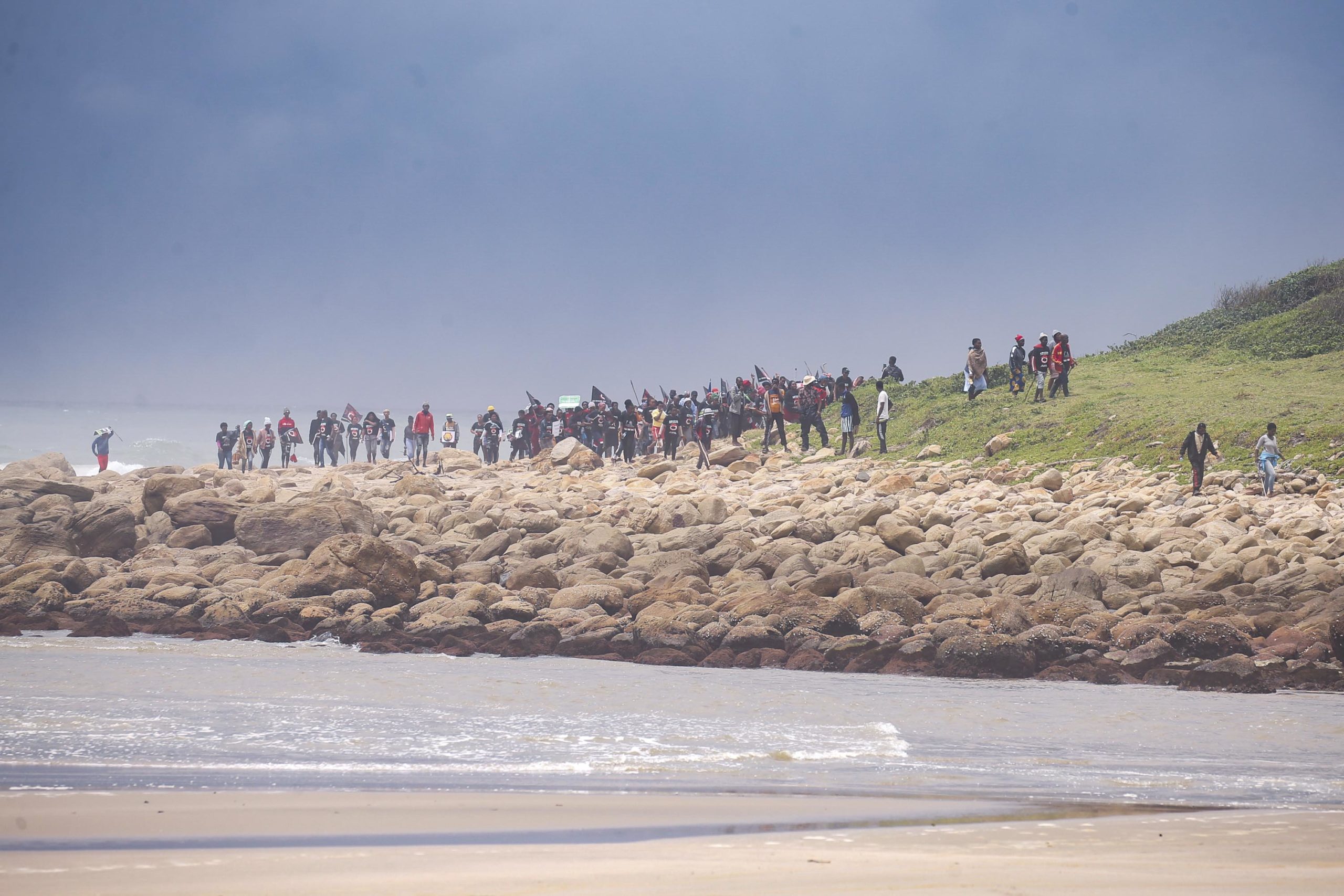
Yaleka Dlamini, who also lives in Sigidi village, said the impact of losing access to natural resources would lead to a loss of income. This would inevitably result in food insecurity and further impoverishment for vulnerable households that are already under pressure.
“A lot has changed here. The little permission we have, which allows us to catch enough fish to sell or eat, could be better. We need more recognition and support from the state. Why are they not instead giving us better permits that allow the fishermen to catch more fish, like the big companies in the bigger boats? Why are they not providing us with resources like cold rooms and safe stalls so we can sell what we catch?
“If we are more recognised, it will also prevent opportunists like Shell from getting away with milking our ocean and will actually support a sustained economy. If they don’t want to do that, I say voetsek (go away) Shell. They must then just leave us as we are,” said Dlamini.
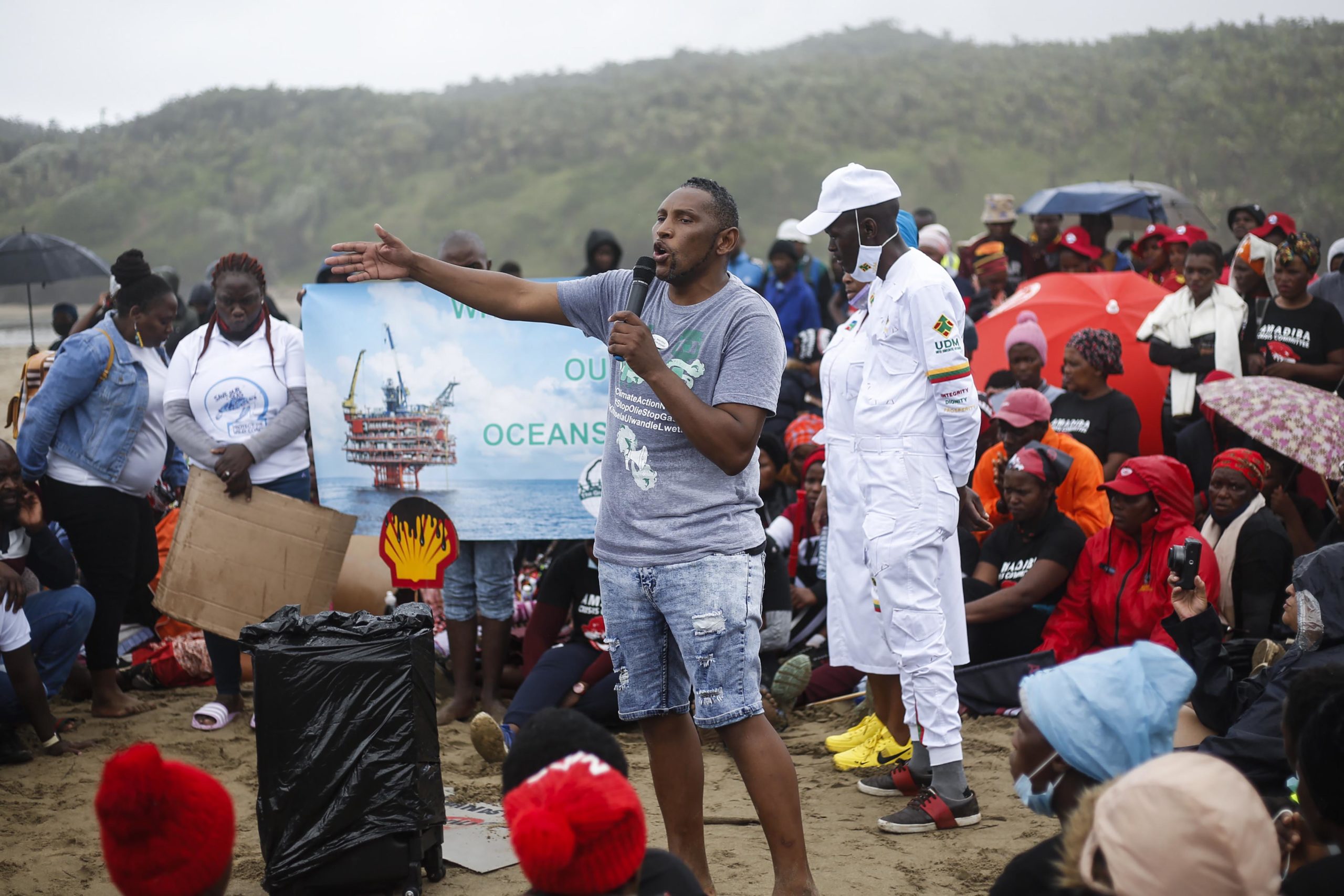
Depending on the ocean
Masikisi Thumbu, who has been a sangoma for 21 years, said the impact of Shell’s search for oil and gas would cause complications to the way of life and culture of communities living on the Wild Coast.
“The ocean brings life and healing to us. We live and breathe its air and it offers healing and food to us. We appreciate the ocean for its healing powers and what it signifies to us. It is our mine and source of life. For us, water is the essence of both spiritual and physical life.
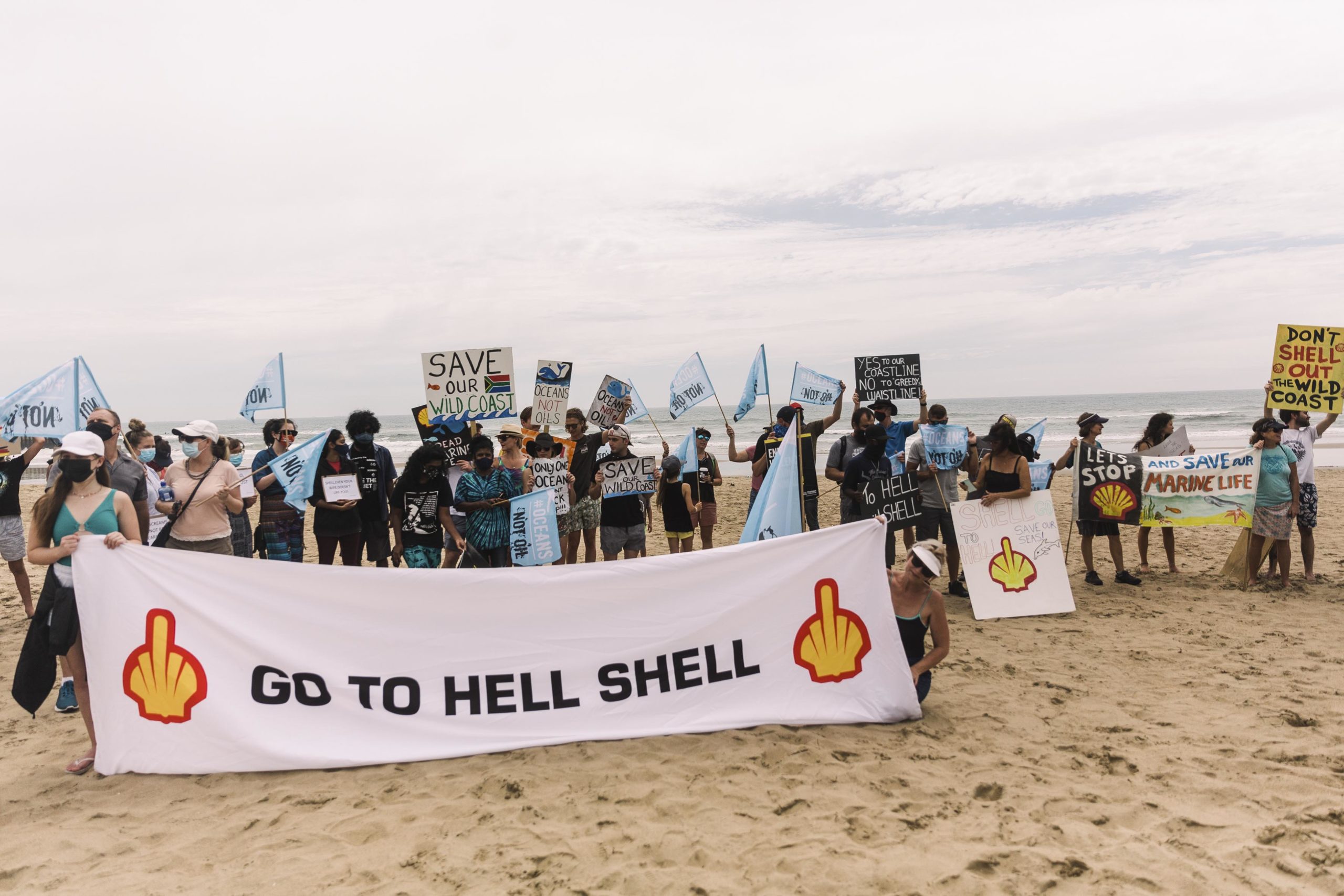
“The ocean will be badly tampered with and polluted, leading to infected fish and difficulty in use for rituals. Then we will not be able to eat, heal or live,” said Thumbu.
The Department of Forestry, Fisheries and the Environment noted in a statement on 22 November that it had not been involved in considering Shell’s application or making a decision authorising the seismic survey.
It said it had noted concerns about the survey, to be conducted by Shell and the privately owned exploration company Impact Africa, but pointed out that the minister of mineral resources and energy, Gwede Mantashe, was responsible for the administration of the Mineral and Petroleum Resources Development Act and had authorised the survey.
